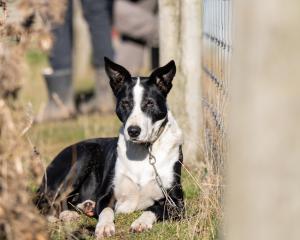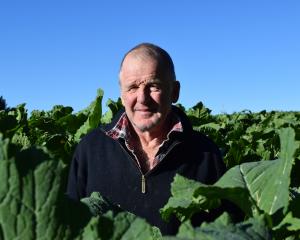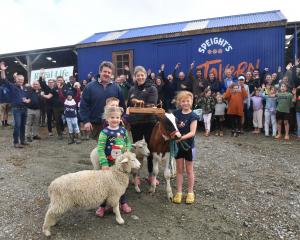About 90% of the Perkins gear built in a workshop in central Dunedin was shipped to clients in Australia.
"We think it is pretty cool we are manufacturing here in Dunedin and exporting it to Australia," Mr Perkins said.
More international markets were being explored including Saudi Arabia and the United Kingdom.
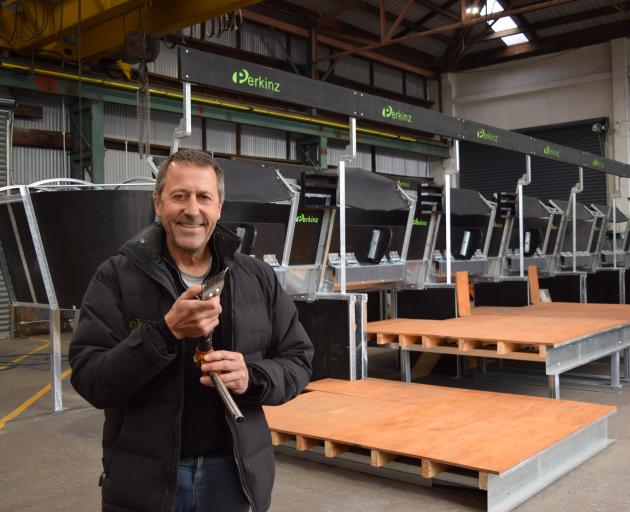
Demand for its crutching trailers was strong in Australia, with about 400 sold over the past 15 years. Profit from the crutching trailer sales had allowed for the research and development of new products to be made in Dunedin.
The day Southern Rural Life visited the workshop, a six-stand shearing system, worth more than $100,000, was due to be loaded in a container to ship to New South Wales.
Australian farmers had bought all of the 13 shearing systems he had sold since launching the product about 30 months ago.
He believed there was potential to sell hundreds, if not thousands, of the systems to Australian fine wool farmers.
EB Engineering owned the Perkinz brand and built the products in its workshop in central Dunedin.
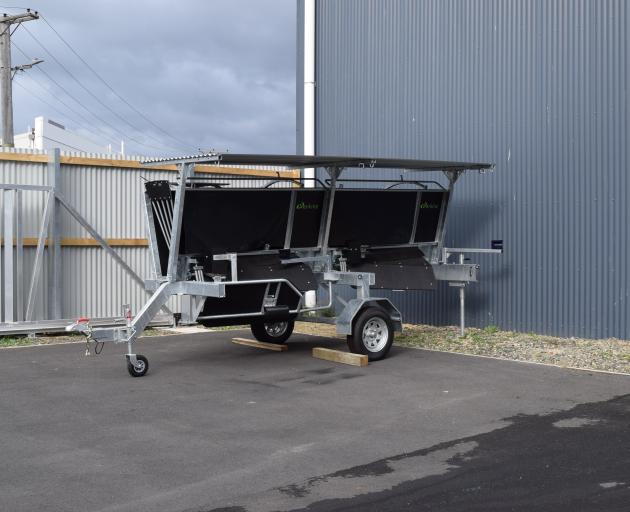
No Perkinz shearing systems had been sold in New Zealand which could be due to falling sheep numbers and a lack of confidence from wool growers to buy a "big ticket item".
Perkinz was launched about 17 years ago and the range now includes systems for shearing, crutching, drenching, pumping, spraying and shearing.
Solar water pumps were a big growth area for the business, he said.
The design of a Perkinz shearing system meant shearers had to drag a sheep a much shorter distance than a traditional system, saving time and energy and reducing the chance of an injury.
Tipping over an almost 80kg sheep and dragging it across a shearing board put a lot of pressure on a shearer’s joints, back and hips, he said.
The idea for the flagship product originated from Mr Perkins’ time working as a shearer in Southland for 15 years.
On his run, he discovered an abandoned sheep shearing system, designed to reduce pressure on the back of its user.
"I bought it off the farmer, ripped my wife’s garden trailer to bits and went out and sheared some sheep on it. It was a bit of a disaster but I thought, ‘this’ll be fun, I’ll have a crack at this’."



